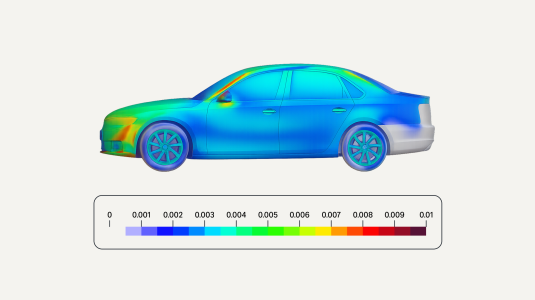Customer-obsessed science


Research areas
-
September 26, 2025To transform scientific domains, foundation models will require physical-constraint satisfaction, uncertainty quantification, and specialized forecasting techniques that overcome data scarcity while maintaining scientific rigor.
-
Featured news
-
2024Quantifying the degree of similarity between images is a key copyright issue for image-based machine learning. In legal doctrine however, determining the degree of similarity between works requires subjective analysis, and fact-finders (judges and juries) can demonstrate considerable variability in these subjective judgement calls. Images that are structurally similar can be deemed dissimilar, whereas images
-
ASPLOS 20242024Relational graph neural networks (RGNNs) are graph neural networks with dedicated structures for modeling the different types of nodes and edges in heterogeneous graphs. While RGNNs have been increasingly adopted in many real-world applications due to their versatility and accuracy, they pose performance and system design challenges: inherent memory-intensive computation patterns, the gap between the programming
-
ACL Findings 20242024Generative models, widely utilized in various applications, can often struggle with prompts corresponding to partial tokens. This struggle stems from tokenization, where partial tokens fall out of distribution during inference, leading to incorrect or nonsensical outputs. This paper examines a technique to alleviate the tokenization artifact on text completion in generative models, maintaining performance
-
Nature Communications2024Silicon color centers have recently emerged as promising candidates for commercial quantum technology, yet their interaction with electric fields has yet to be investigated. In this paper, we demonstrate electrical manipulation of telecom silicon color centers by implementing novel lateral electrical diodes with an integrated G center ensemble in a commercial silicon on insulator wafer. The ensemble optical
-
2024Recent advances in few-shot question answering (QA) mostly rely on the power of pre-trained large language models (LLMs) and fine-tuning in specific settings. Although the pre-training stage has already equipped LLMs with powerful reasoning capabilities, LLMs still need to be fine-tuned to adapt to specific domains to achieve the best results. In this paper, we propose to select the most informative data
Collaborations
View allWhether you're a faculty member or student, there are number of ways you can engage with Amazon.
View all














































